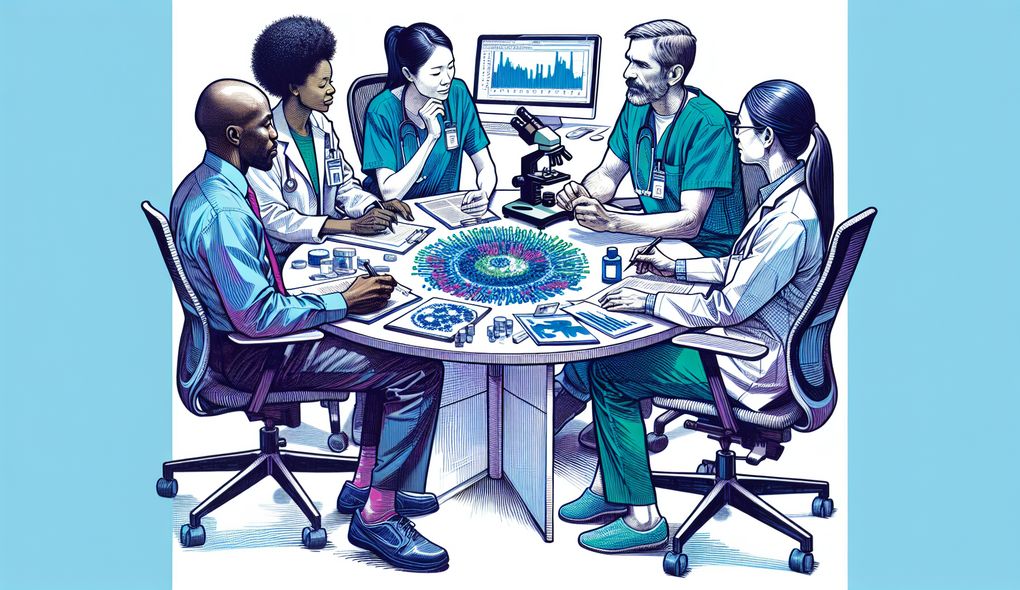What steps do you take to maintain accuracy and attention to detail in your work?
INTERMEDIATE LEVEL

Sample answer to the question:
To maintain accuracy and attention to detail in my work, I follow a meticulous process. Firstly, I create a detailed plan outlining all the tasks and milestones to be completed. This helps me stay organized and ensures that nothing is missed. Secondly, I double-check all my work before submitting it. This includes reviewing data, documents, and reports for any errors or inconsistencies. I also verify that all information is complete and accurate. Additionally, I am proactive in seeking feedback from colleagues or supervisors to catch any mistakes that I might have missed. Lastly, I prioritize staying up to date with any changes or updates in protocols, regulations, or procedures that could impact my work. This includes attending training sessions or workshops and regularly reviewing relevant literature and resources.
Here is a more solid answer:
In my role as a Clinical Research Coordinator, maintaining accuracy and attention to detail is crucial for ensuring the success and integrity of clinical trials. Firstly, I would establish a detailed project plan, breaking down tasks and setting timelines to keep myself organized. This helps me prioritize tasks effectively and ensures that deadlines are met without compromising quality. To maintain accuracy, I meticulously review all study-related documents, including protocols, participant records, and consent forms. I pay particular attention to numerical data, ensuring that data entry is accurate and that there are no data discrepancies. Additionally, I conduct regular audits to verify the consistency and completeness of data. In terms of proactive measures, I am constantly staying updated on the latest regulations and guidelines set by the FDA and other regulatory bodies. This involves attending relevant training sessions and workshops, as well as actively reading literature in the field. Lastly, I believe collaboration is essential in maintaining accuracy. I actively seek feedback from colleagues and senior researchers to ensure that my work aligns with the study's objectives and that any potential errors are caught and corrected. This collaborative approach also facilitates efficient problem-solving and communication between the study team, sponsors, and regulatory bodies.
Why is this a more solid answer?
The solid answer expands on the basic answer by providing more specific examples and details of how the candidate maintains accuracy and attention to detail in their work as a Clinical Research Coordinator. It highlights the importance of establishing a project plan, reviewing study-related documents, conducting audits, staying updated on regulations, and seeking feedback from colleagues and senior researchers. However, the answer could still be improved by providing more specific examples of challenges the candidate has faced and how they have overcome them.
An example of a exceptional answer:
Maintaining accuracy and attention to detail in my work as a Clinical Research Coordinator is vital for ensuring the success of clinical trials and the integrity of the data collected. I have developed a comprehensive approach that includes several key steps. Firstly, I begin by thoroughly reviewing the study protocols and related documents to familiarize myself with the specific requirements and objectives of the trial. This allows me to identify any potential discrepancies or gaps in the information provided. Secondly, I create a detailed checklist or workflow to guide my work. This checklist includes all the necessary tasks involved in the study, such as participant recruitment, data collection, and regulatory documentation. By following this checklist, I can ensure that no steps are missed and that each task is completed accurately and on time. Additionally, I regularly communicate with the study team, sponsors, and regulatory bodies to clarify any uncertainties or address any questions that may arise during the course of the trial. This open line of communication helps to avoid misunderstandings and ensures that everyone is on the same page. Furthermore, I actively seek opportunities for continuous learning and professional development. I attend conferences, workshops, and webinars related to clinical research to stay updated on the latest industry trends, regulations, and best practices. This helps me to continually enhance my knowledge and skills, which in turn improves the accuracy and quality of my work. Lastly, I embrace a proactive approach by regularly conducting internal audits of the study data. I review participant records, case report forms, and other study documents to identify any errors or inconsistencies that may have been overlooked. By catching these issues early on, I can take the necessary steps to rectify them and ensure the accuracy of the data. Overall, by following these steps, I am able to maintain a high level of accuracy and attention to detail in my work as a Clinical Research Coordinator.
Why is this an exceptional answer?
The exceptional answer provides a comprehensive and detailed response to the question, highlighting the candidate's extensive experience and expertise in maintaining accuracy and attention to detail in their work as a Clinical Research Coordinator. It demonstrates their knowledge of study protocols, their meticulous approach to creating checklists and workflows, their effective communication skills, their commitment to continuous learning, and their proactive approach to conducting internal audits. The answer also addresses potential challenges and describes how the candidate overcomes them. It showcases the candidate's ability to consistently deliver accurate and high-quality work in a clinical research setting.
How to prepare for this question:
- Familiarize yourself with study protocols and related documents to understand the specific requirements and objectives of clinical trials.
- Develop a systematic approach for organizing and managing tasks, such as creating checklists or workflows.
- Stay updated on regulations and best practices in clinical research by attending conferences, workshops, and webinars.
- Seek opportunities for continuous learning and professional development to enhance your knowledge and skills.
- Practice effective communication and collaboration with the study team, sponsors, and regulatory bodies.
What are interviewers evaluating with this question?
- Attention to detail
- Organization
- Proactive
- Continuous learning

